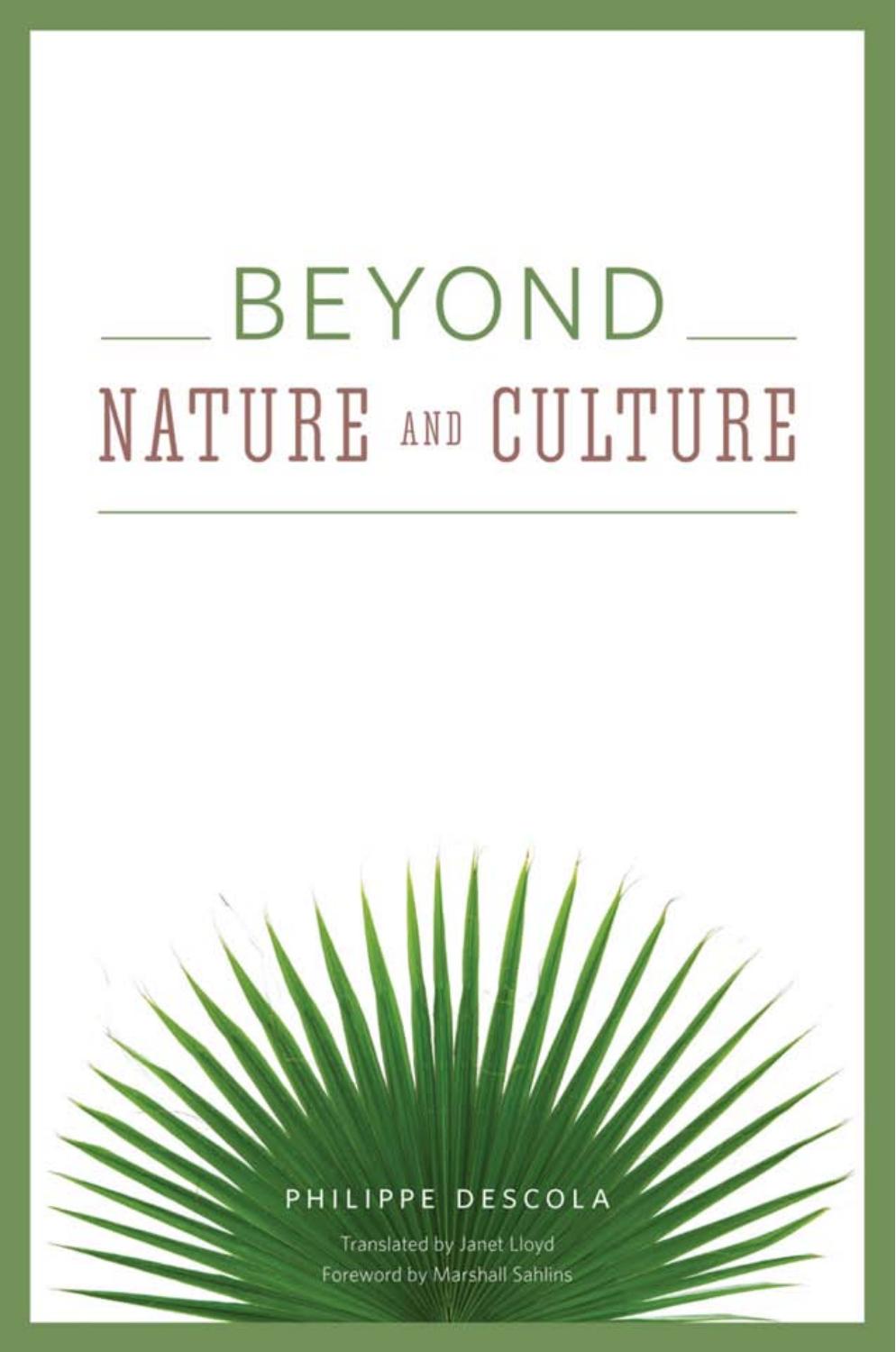Beyond Nature and Culture by Philippe Descola

Author:Philippe Descola [Philippe Descola]
Language: eng
Format: epub, pdf
10
Terms, Relations, Categories
Now that we have completed this tour of ontologies, both exotic and familiar, we can define and enrich the table of modes of identification with more precision. Depending on what characteristics humans discern in existing beings, judging on the basis of their idea of the physical and spiritual properties of their own persons, continuities and discontinuities of varying proportions are established between the entities of the world, classifications based on identity and similarity come to seem self-evident, and frontiers emerge, consigning different categories of beings to separate regimes of existence. The distribution of the four combinations of resemblances and differences is organized on the basis of two vertical axes. One is characterized by wide dichotomous separations, by the preeminence of continuity over discontinuity and by the inversion of the poles of hierarchical inclusion. In animism, the continuity of interiorities between humans and nonhumans that share the same “culture” takes on a universal value (in contrast to the particular and the relative introduced by differences in forms and biological equipment). Meanwhile, in naturalism it is the continuity of physicalities within the unified field of nature that plays this role (in contrast to the particular and the relative introduced by cultural differences). The other axis favors chromatic continuities and, in a paired symmetry, juxtaposes a system of resemblances tending toward identity (totemism) and a system of gradual differences tending toward continuity (analogism) (fig. 2).
It might reasonably be objected that the world and its ways are far too complex to be reduced to this kind of combination of elements. But we should remember that modes of identification are not cultural models or locally dominant forms of habitus. Rather, they are schemas for integrating experience, which make it possible to structure, in a selective fashion, the flux of perceptions and relations. They do this by noting resemblances and differences between things on the basis of the same resources that every human carries within himself or herself: namely a body and intentionality. Given that the principles that govern such schemas are ex hypothesi universal, they cannot be exclusive, and we may suppose that they coexist potentially in all human beings. One or another of the modes of identification certainly becomes dominant in this or that historical situation and is consequently preferred and mobilized both in practical activities and in classificatory judgments, although this does not prevent the three other modes from sometimes infiltrating the formation of a representation, the organization of a course of action, or even the definition of a field of customs. Thus, most Europeans—and I am no exception—are spontaneously naturalists by virtue of their education, both formal and informal. But that does not prevent some of them, in certain circumstances, from treating their cat as though it has a soul, from believing that the orbit of Jupiter will affect what they do the next day, or even from identifying with one particular place and its human and nonhuman inhabitants so closely that the rest of the world seems to them to be of an entirely different nature from that of the community to which they are attached.
Download
Beyond Nature and Culture by Philippe Descola.pdf
This site does not store any files on its server. We only index and link to content provided by other sites. Please contact the content providers to delete copyright contents if any and email us, we'll remove relevant links or contents immediately.
The remains of the day by Kazuo Ishiguro(9000)
Tools of Titans by Timothy Ferriss(8398)
Giovanni's Room by James Baldwin(7347)
The Black Swan by Nassim Nicholas Taleb(7131)
Inner Engineering: A Yogi's Guide to Joy by Sadhguru(6797)
The Way of Zen by Alan W. Watts(6615)
The Power of Now: A Guide to Spiritual Enlightenment by Eckhart Tolle(5784)
Asking the Right Questions: A Guide to Critical Thinking by M. Neil Browne & Stuart M. Keeley(5775)
The Six Wives Of Henry VIII (WOMEN IN HISTORY) by Fraser Antonia(5516)
Astrophysics for People in a Hurry by Neil DeGrasse Tyson(5191)
Housekeeping by Marilynne Robinson(4449)
12 Rules for Life by Jordan B. Peterson(4307)
Ikigai by Héctor García & Francesc Miralles(4275)
Double Down (Diary of a Wimpy Kid Book 11) by Jeff Kinney(4273)
The Ethical Slut by Janet W. Hardy(4258)
Skin in the Game by Nassim Nicholas Taleb(4250)
The Art of Happiness by The Dalai Lama(4130)
Skin in the Game: Hidden Asymmetries in Daily Life by Nassim Nicholas Taleb(4007)
Walking by Henry David Thoreau(3963)
